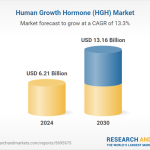Internet porn significantly impacts how our brains function. Neuroscience research reveals that repeated exposure affects dopamine levels, memory, focus, and emotional regulation. This article breaks down five key ways internet porn alters the brain, based on recent studies, and offers solutions to help individuals better understand and manage these effects.
In a digital world of instant gratification, internet porn is more accessible than ever. But with constant exposure comes unexpected consequences for mental and emotional health.
Studies show that internet porn isn’t just entertainment—it actively changes brain chemistry, behavior, and long-term cognitive function. This article will explore five major ways it affects the brain, and how you can take back control.
1. It Rewires the Brain’s Reward System
Internet porn delivers a surge of dopamine, the brain chemical responsible for motivation, pleasure, and reward. But repeated exposure can overstimulate the system.
What happens:
- Dopamine receptors may become less sensitive over time
- The brain begins craving more extreme or novel content
- This leads to compulsive behaviors similar to addiction
A study in Frontiers in Psychology (2021) found that high porn consumption correlates with reduced activation in the prefrontal cortex, which manages self-control and decision-making.
2. It Can Impair Memory and Focus
Frequent porn use can contribute to what some describe as “brain fog.” This is because overuse can disrupt the brain’s executive functions.
Key effects:
- Reduced working memory capacity
- Lower attention span and task focus
- Difficulty concentrating without external stimulation
Research from the Max Planck Institute found that men who watched high amounts of porn had less gray matter volume in areas tied to memory and self-regulation.
3. It Desensitizes the Brain to Natural Rewards
Overstimulation from internet porn can reduce sensitivity to everyday pleasures and connection.
Signs of desensitization:
- Less interest in real-life sexual experiences
- Decreased enjoyment from hobbies or relationships
- Constant need for novelty to feel aroused
The brain adjusts its “pleasure baseline,” meaning natural activities become less satisfying, which can impact motivation and emotional well-being.
4. It May Contribute to Anxiety and Depression
While porn is often used to escape stress, excessive use may actually increase mental health challenges.
Research shows:
- Links between heavy porn use and depressive symptoms
- Feelings of isolation, guilt, and shame, especially in young users
- Reduced emotional resilience and increased social withdrawal
A study in Addictive Behaviors (2020) found a statistically significant connection between high-frequency porn use and symptoms of anxiety and depression.
5. It Reveals the Brain’s Ability to Recover
The most important takeaway is that the brain can heal. Through neuroplasticity, it can adapt and form new, healthier patterns.
Ways to support recovery:
- Limit or eliminate use to reset dopamine sensitivity
- Engage in physical activity and creative hobbies
- Practice mindfulness or cognitive behavioral therapy (CBT)
- Reconnect with real-life experiences and relationships
With consistent changes, many people report improved clarity, mood, motivation, and self-esteem within weeks or months.
FAQs
1. How does internet porn affect the brain?
It alters dopamine regulation, affects memory, and can reduce sensitivity to natural rewards.
2. Can internet porn be addictive?
Yes, some users develop compulsive patterns similar to behavioral addictions.
3. Does porn impact real-life relationships?
Yes, it can reduce satisfaction and connection due to emotional and physical desensitization.
4. Is the damage from porn use permanent?
No. The brain can often recover with lifestyle changes and time.
5. Are there proven scientific studies about this?
Yes. Several peer-reviewed studies confirm changes in brain structure and function due to porn overuse.
6. Is moderate porn use harmful?
Not necessarily. Effects vary depending on frequency, age, personal context, and emotional dependency.
Conclusion
Internet porn use may seem harmless on the surface, but it has deeper, scientifically measurable effects on the brain. From rewiring dopamine pathways to influencing mood and attention, its impact is real.
However, the brain is resilient. With the right awareness and habits, many people can reverse negative effects and regain control over their mental clarity, motivation, and emotional health.
Understanding these effects is the first step toward healthier, more intentional digital choices.









